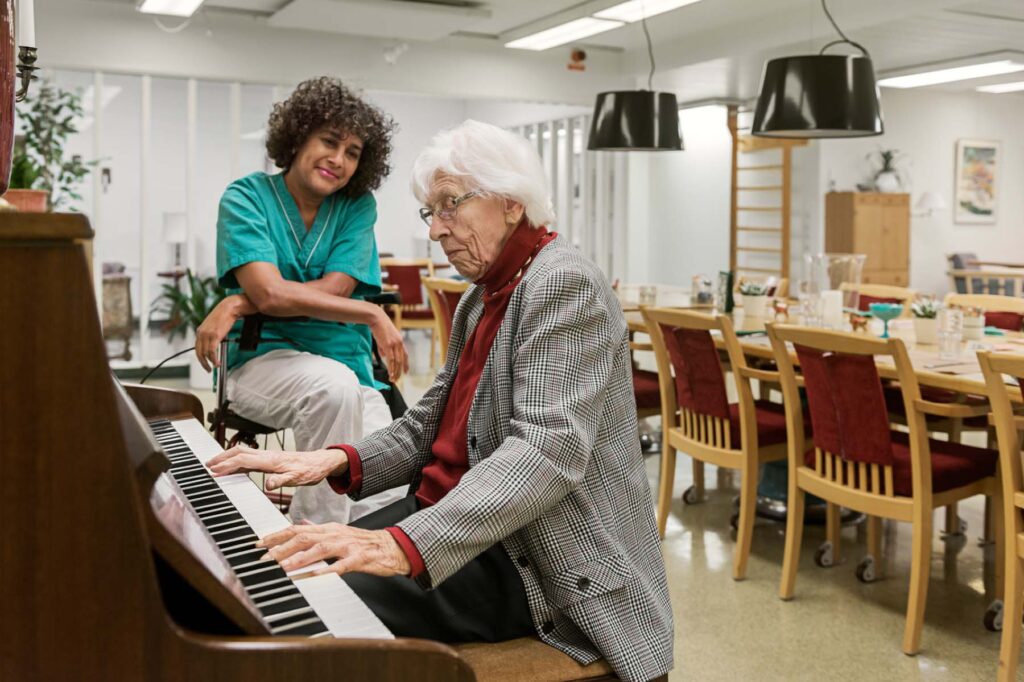
Quality of life ultimately translates to spending as much time as possible doing activities that bring meaning or delight to one’s days. What those activities are will vary for each individual. Your loved one deserves to have the chores of daily life and medical challenges offset by truly engaging activities. Because our caregivers develop such strong and loyal long-term relationships, they become invested in finding ways to keep your relative happy as well as healthy. Here are some stories (with names changed) that illustrate the ways our caregivers have gone above and beyond to serve their clients.
Peter had ALS, a progressive disorder of the nerves and muscles that results in a gradual paralysis of the body while the mind remains active. Peter wanted to keep his physical abilities for as long as possible, so he and his caregiver signed up for a swimming membership at a local club. Three times a week they went to the club and did water resistance exercises together, as well as swimming laps, so Peter could prolong his mobility. The swimming helped him feel positive about his body. He was proud of his ability to continue on and stay mobile far past what the therapists had originally predicted was likely. When the time came that swimming was no longer possible, his caregiver taught Peter advanced chess strategies. Many was the night they stayed up late with “just one more game” that they needed to finish before turning in.
Maria loved the opera. Season tickets. Dressing up. Seeing and being seen. And the music! She was not going to let cognitive impairment keep her from this deep pleasure. For several years, she and her caregiver attended the Met together so Maria could indulge her love of this art form to the utmost. (In fact, they stopped going only because she became no longer able to restrain herself from singing along!) Instead, they subscribed to video performances, still got dressed up, and sang along from home.
Francis loved painting. She had dabbled in art as a young woman, and she loved going to the many museums available in New York City. Francis never had children, and as she neared her 90s, many of her peers were no longer able to accompany her. The trust attorney responsible for her care suggested Home Care Match LLC because he understood that loneliness could easily compromise her physical health and her will to live. We matched Francis with a caregiver who was himself a gifted artist. In addition to making meals for her and taking her to the hairdresser, he set up a painting corner in her study and created twice-weekly art lessons for her. They regularly went to exhibits at MOMA and followed it up with lunch on of the museum cafés. Francis was able to keep her curiosity engaged by learning something brand new at 90 and exploring a creative outlet that had always intrigued her.
“Broadway Harold.” In his youth, Harold had participated in community theater. He was a big man with a deep voice who took particular delight in musical comedy. In his middle age, he participated in barbershop quartets and various community choirs. He loved going to Broadway shows. In his elder years, however, he had enough mobility challenges that this had not been possible. The prospect of going to Broadway with a caregiver was one of the key selling points for his signing on with Home Care Match LLC! We were able to find Harold a caregiver who was big and strong enough to help Harold stay steady if he started to lose his balance. But this caregiver was also a very talented piano player. The family provided a keyboard and several Broadway show tune books so Harold could “visit Broadway” any time he liked, singing along as the caregiver tickled the ivories.

